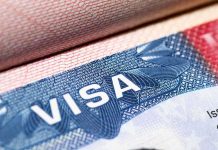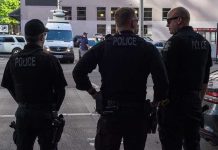
For the first time, federal authorities are asking local police to submit suspected cartel and gang affiliates—potentially including American citizens—for inclusion on the U.S. terrorist watch list, raising urgent questions about due process, government overreach, and constitutional rights.
Story Snapshot
- The FBI directed local law enforcement to identify and submit names of suspected cartel and gang affiliates for the terrorist watch list, potentially sweeping U.S. citizens into a post-9/11 counterterrorism system.
- President Trump’s 2025 executive order designated eight major cartels and gangs as foreign terrorist organizations, drastically expanding federal enforcement powers.
- This shift blurs the line between criminal and terrorist threats, igniting debate over civil liberties, gun rights, and the scope of federal authority.
- Mexico and Venezuela have strongly condemned the U.S. move, warning of diplomatic fallout and infringement on national sovereignty.
FBI Expands Terror Watch List to Domestic Suspects
On May 9, 2025, the FBI sent a nationwide request to local police departments, asking for the names of individuals suspected to be affiliated with newly designated terrorist organizations—primarily powerful Latin American drug cartels and transnational gangs. This unprecedented step follows President Trump’s January executive order and subsequent State Department action in February, which labeled groups like MS-13 and Tren de Aragua as foreign terrorist entities. The move marks the first time local law enforcement is being leveraged to identify Americans for a watch list historically reserved for foreign terrorism suspects.
The terrorist watch list, originally designed after the September 11 attacks to track foreign nationals with suspected terror ties, is now being repurposed. The FBI’s request, disseminated through the National Sheriffs’ Association, directs departments to flag not only direct members of cartels and gangs, but also relatives and acquaintances. This dramatic expansion is justified by the administration as necessary to combat escalating cartel violence and the fentanyl epidemic plaguing the southern border. According to official sources, this initiative is part of a broader Trump administration strategy that includes deploying military and National Guard units to critical border regions for enhanced enforcement.
Constitutional and Civil Liberties Concerns
Legal scholars and civil liberties advocates are raising alarms about the erosion of due process. Placing U.S. citizens on a terrorist watch list—often with limited transparency or clear legal standards—introduces the risk of wrongful inclusion and government overreach. Critics argue this undermines constitutional protections, including the right to bear arms, as watch list status can trigger firearm purchase restrictions. Advocacy groups also highlight the lack of clear evidence requirements for inclusion, which could chill free association and stoke fear in communities already wary of government surveillance. The debate has reignited longstanding concerns about the balance between security and liberty.
The Trump administration and its supporters defend the policy as a necessary response to unprecedented violence and trafficking linked to transnational cartels. They maintain that existing criminal statutes proved insufficient and that the terrorist designation unlocks new tools for interdiction and prosecution. Law enforcement agencies, meanwhile, face the challenge of implementing federal directives while maintaining trust with local communities, especially given the broad net cast by the FBI’s request.
Diplomatic Fallout and International Response
Mexico and Venezuela have vocally rejected the U.S. designations and threatened interventions, framing them as violations of sovereignty and politically motivated maneuvers. Mexico’s President Sheinbaum publicly declared that any cross-border action would be considered an unacceptable infringement on national territory. Venezuela’s foreign ministry dismissed U.S. claims as baseless and warned of further deterioration in diplomatic relations. These responses underscore the complex interplay between domestic security measures and international law, particularly when U.S. policy directly implicates foreign nationals and territory.
Exclusive: FBI looks to add drug cartel suspects to terror watch list, government files show https://t.co/LBS7AtyWyi https://t.co/LBS7AtyWyi
— Reuters (@Reuters) August 8, 2025
Despite international pushback, the Trump administration has doubled down on its commitment to aggressive counter-cartel operations. Official statements emphasize national security and public safety, while downplaying foreign criticism. The reality on the ground is an expansion of military presence at the southern border and heightened scrutiny of individuals with suspected ties to designated organizations—regardless of citizenship. The federal government’s assertion of authority in these areas signals a willingness to test the limits of executive power, even as legal challenges loom and diplomatic tensions escalate.
Long-Term Implications for American Liberty and Security
The expansion of the terrorist watch list to include suspected cartel and gang affiliates portends significant shifts for American society. In the short term, more citizens face surveillance, travel restrictions, and potential firearm prohibitions based on suspicion rather than conviction. Over time, experts warn this could normalize the use of counterterrorism tools against domestic targets, eroding foundational legal protections. The move also raises the specter of unchecked government databases and a permanent state of emergency, with implications for family values, individual rights, and traditional American freedoms. While proponents hail the policy as a long-overdue crackdown on crime, its true legacy may be written in the courts and the lived experiences of Americans navigating a transformed security landscape.
Sources:
Trump tells military to target Latin American drug cartels, source says
Trump orders U.S. Army to combat foreign drug cartels
Mexico president: No invasion as Trump targets cartels with military force











